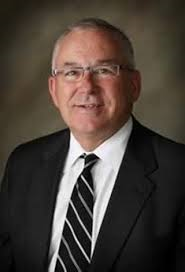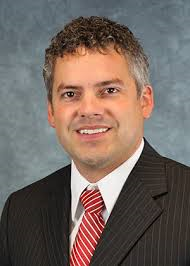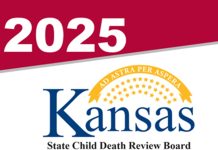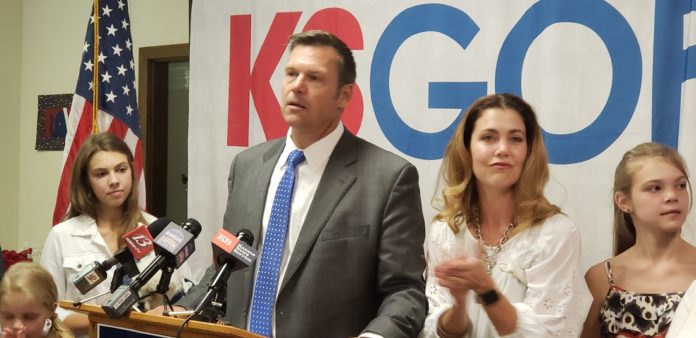Republican Secretary of State Kris Kobach didn’t need to raise much money to win the GOP nomination for governor.
Running mate Wink Hartman injected about $1.5 million into the Kobach campaign, making up about 90 percent of all the money the GOP nominee raised this year.
Now as Kobach heads into the heart of the general election, questions persist about his ability to win over big business.
An all-star team of Kansas business and industry supported Republican Gov. Jeff Colyer in the primary: Kansas City Power & Light, Union Pacific Railroad, Spirit AeroSystems, Sprint, Blue Cross and Blue Shield, BNSF Railway, Bombardier among many others.
But there’s some doubt in political circles about whether Kobach can attract that money, whether it’s because he’s sometimes lined up against businesses at the statehouse or whether he’s committed to cultivating the relationships needed to raise money.
In recent years, Kobach’s gone up against business over workers compensation and immigration, and he’s now taking on utility companies over rising electrical rates, even promising to use that issue as a litmus test for appointments to the Kansas Corporation Commission.
It’s a difficult predicament for Republican-leaning business executives in a red state with a GOP gubernatorial candidate who might not be friendly to their interests, said some conservative statehouse sources speaking anonymously so they could be candid.
“Businesses just don’t quite know how to react to Kobach,” said one conservative source who’s familiar with the thinking of major industrial players in the state. “You just don’t know what you’re going to get.”
There undoubtedly will be big businesses that will support Kobach. For example, he’s likely to get support from the managed–care companies that contract with the state to run KanCare. Kelly wants to move away from the KanCare model that former Gov. Sam Brownback implemented, giving those companies incentive to get involved in the race.
Others may give a little, enough to show support for the Republican nominee but might not necessarily go all-in like they might for a more traditional conservative candidate with a less colorful reputation.
Still others, may hedge their bets and contribute to both leading candidates. Or some may donate to the state party or a political action committee and let them disburse the money.
“They don’t know what they’re going to do,” another source said of the business community. “There are various strategies. No one is quite sure exactly what to do. This is difficult for many people.”
Kobach, in a recent interview, said he wasn’t worried about drumming up support from big business.
“They’re already coming on board,” Kobach said shortly after Colyer conceded the race.
While there are areas where Kobach acknowledged disagreeing with business, he believes cutting taxes is an overriding issue.
“Getting our taxes down is something that businesses care deeply about,” Kobach said.
Just this past week, Hartman met with two conservative heavy hitters in the Kansas business community — Dave Murfin, chairman and chief executive of Murfin Drilling, as well as Ivan Crossland, chief executive of Crossland Construction Co, said Kobach campaign manager J.R. Claeys.
How that meeting worked out and where it might lead is unknown, but the Kobach campaign believes businesses will go with him in the general election.
“Business leaders in Kansas know they have allies to grow the Kansas economy in Kris Kobach and Wink Hartman,” Claeys said in a statement. “They are candidates with a proven pro-business and job creating record.”
But there are areas where Kobach has parted ways with businesses or could be in opposition to their interests if he wins the governor’s race. Consider these examples:
- Workers compensation: Kobach, teaming with Democratic lawyer Keith Mark, has urged the Legislature to adopt a medical guidebook that could potentially reward workers more in workers compensation claims. The Legislature moved to the sixth edition of the American Medical Association guide in 2015, but it was struck down as unconstitutional by a state appeals court last month because it went too far in limiting those claims. Last year, Kobach urged lawmakers to move back to the fourth edition of the book in the face of opposition from Spirit Aerosystems, the Kansas Chamber of Commerce and the National Federation of Independent Business. Some conservative leaders worry privately that Kobach will make Mark secretary of labor if he’s elected governor.
- Immigration: During the primary, Kobach failed to win the support from the Kansas Farm Bureau and the Kansas Livestock Association, something he pinned on his support for hard-line policies against illegal immigration. Kobach has said he would sign an executive order requiring state agencies to use a federal database — known as E-Verify – to confirm whether their employees and contractors can legally work in the United States. Kobach’s immigration proposals in recent years ran into opposition from a group of 26 business associations arguing for federal immigration reform instead of at the state level. The immigration group included heavyweights such as the Kansas Chamber of Commerce, the farm bureau, the livestock association, the Kansas Contractors Association and a handful of other chambers of commerce.
- Utility rates: This issue cuts two ways. Kobach has argued against rising Kansas utility rates, which are the highest in the Midwest. It’s an issue already being pressed at the Capitol by big industrial power users. But it stands to alienate utility companies that donated heavily to Colyer in the primary. At the Kansas State Fair debate a week ago, Kobach linked Orman to those rate increases when he worked for Kansas City Power & Light. For his part, Orman said the rate increases occurred after he left KCP&L and that Kobach’s information was dated. Campaign records show that KCP&L and Westar executives as well as employees weighed in heavily for Colyer during the primary, contributing at least $24,500 to the governor’s campaign. Whether utilities will contribute to Kobach’s campaign is still unknown. Representatives of Evergy – the newly merged company between KCP&L and Westar – declined to discuss their plans for donations. While Kobach’s position might potentially rankle the utilities, some observers point out that this issue might be a net gain for him with business.
A handful of businesses that supported Colyer during the primary — AT&T, Sprint, Spirit AeroSystems, Blue Cross and Blue Shield — were mum about their political plans.
“We have a long history of supporting incumbents with whom we have developed working relationships and that is we why we made the choice that we did in the primary,” Blue Cross spokeswoman Mary Beth Chambers said in a recent email.
Chambers said Blue Cross hadn’t made a decision about the general election in an email exchange several weeks ago.

Mike O’Neal, former chief executive of the Kansas Chamber of Commerce and Kansas House speaker, said Kobach might differ with business in some areas, but there are other issues where they’re in agreement such as regulation, spending, taxes and capping property appraisals.
“There are some issues in which you can draw a distinction between the position of businesses and Kobach, but you can also pinpoint a lot of other issues important to the business community where they’re on the same page,” O’Neal said.
O’Neal said the electricty issue is one where there could be some division in the business community. He notes there’s a growing concern that business is shouldering the burden of electric rates. “They may be a little bit more warm to some of things Kobach is saying in terms of utility rates,” he said.
Businesses “aren’t going to have the luxury of a candidate that checks off all 10 boxes. There isn’t a candidate in the race that does that,” O’Neal said. “I don’t see anyway why they don’t support Kobach because the other two would be worse in terms of the business community.”
Bob Regnier, a Republican Johnson County banker, is supporting Orman in the governor’s race. While Regnier speaks positively about Kelly, he believes Orman’s business background and middle-of-the-road approach might be better suited to moving the state forward.
Kobach, however, worries him. He’s not sure the secretary of state’s “very conservative” campaign will resonate well with businesses.
“I don’t think he comes across as a guy who’s going to be successful in selling Kansas as a place to establish your business,” Regnier said.
A moderate business community source in Johnson County expressed concern about Kobach’s approach to economic development, worrying about how he might approach using incentives to attract business. Kobach’s campaign hasn’t answered questions about his position on tax incentives.
“The heartburn with Kobach is that nobody can get their arms around that he’s anything but just a political opportunist grabbing some red-meat issues to become governor,” said the source, speaking anonymously to not jeopardize business relationships.

Kelly Arnold, chairman of the Kansas Republican Party, believes contributors will be there for Kobach.
“We have a lot of Republican donors ready to invest in the Kobach campaign to make sure Republicans retain Cedar Crest,” Arnold said. “They will have good, significant fundraising from our regular donor base, people that are willing to invest in Kansas.”
Just because some major employers backed Colyer in the primary doesn’t necessarily mean they’ll sit out the general election.
“They want a Republican governor in there who will actually be able to work with the Legislature to get stuff done that helps them do business,” Arnold said.
“They may have a few issues with Secretary Kobach that they don’t agree on, but there’s a lot of other issues where they agree on stuff. That’s what they’re going to work with him on.”













